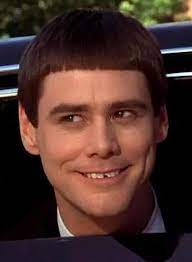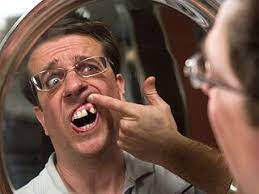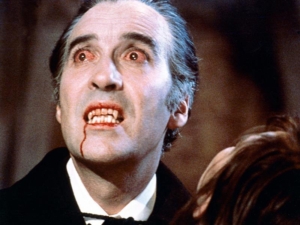Iconic Teeth From Your Favourite Movies
Halloween is coming up – this year your costume can be instantly recognizable with some iconic teeth! Movies and TV shows use prosthetic teeth, natural imperfections in the actors teeth, and make up to give their characters a distinct look.
Winifred Sanderson, Hocus Pocus
The oldest of the Sanderson sisters was obsessed with beauty and youth so it makes sense that the costume designers gave her comically large teeth that don’t meet “conventional” beauty standards.
Austin Powers, The Austin Powers movies
Powers’ bad teeth were created by a dental technician named Gary Archer. Mike Myers came to Archer and told him, “I want bad British 1960s teeth”, based on a widely-held stereotype. Archer took pictures and made drawings of British patrons at an English pub that he often visited and the pictures became the inspiration for the final design Archer showed Myers, resulting in his iconic smile.
Lloyd Christmas, The Dumb and Dumber movies
When Jim Carrey was a child he got into a fight, resulting in the chip in his front tooth. The tooth was capped and Carrey had it temporarily removed to portray Lloyd Christmas.
The Mad Hatter, Alice in Wonderland
Johnny Depp has said the Mad Hatter’s iconic smile was inspired by comedian Terry Thomas’ diastema. In an interview Depp said, “the French call the teeth with the gap in the middle ‘les dents de bonheur’ – ‘the teeth of happiness’,”. A fitting inspiration for the (sometimes) jovial Mad Hatter.
Harry Lyme, Home Alone 1 and 2.
Harry’s gold tooth plays an important role in his identification. When he first enters the McCallister’s house impersonating a police officer, Kevin notices his gold tooth when he smiles. As a result when Kevin is almost hit by Harry and Marv’s van Harry smiles at him again and Kevin notices the gold tooth, blowing his cover as a police officer.
Stu Price, The Hangover
Did Ed Helms REALLY pull out his own tooth for a movie role?! Well, kind of! When Helms was a teenager he had a dental implant placed. Instead of blacking out a tooth for the movie he decided to talk to his dentist to see if he could have the 20 year old implant crown temporarily removed. His dentist agreed to remove it and the rest is movie history!
Belletrix Lestrange, Harry Potter Movies
Though Belletrix’s rotten teeth are never specified in J.K. Rowlings’ book, actress Helena Bohnam Carter felt the gnarly teeth would give her character a feral look. As Bellatrix had spent so much time in prison, Carter felt her teeth should look savage and deranged as she hoped to portray her as such.
Dracula – 1958 Starring Christopher Lee
Vampire fangs have an interesting history in Hollywood as most people associate fangs with Bela Lugosi’s popular 1931 portrayal. Lugosi, however, never wore fangs in his role as Dracula. In the era before microphones actors needed to enunciate for optimal clarity; prosthetic fangs impeded this greatly. Fangs were not popularized in vampire films until Christopher Lee’s iconic portrayal in 1958.
Let us clean up your “fangs”! Call today to book an appointment.








